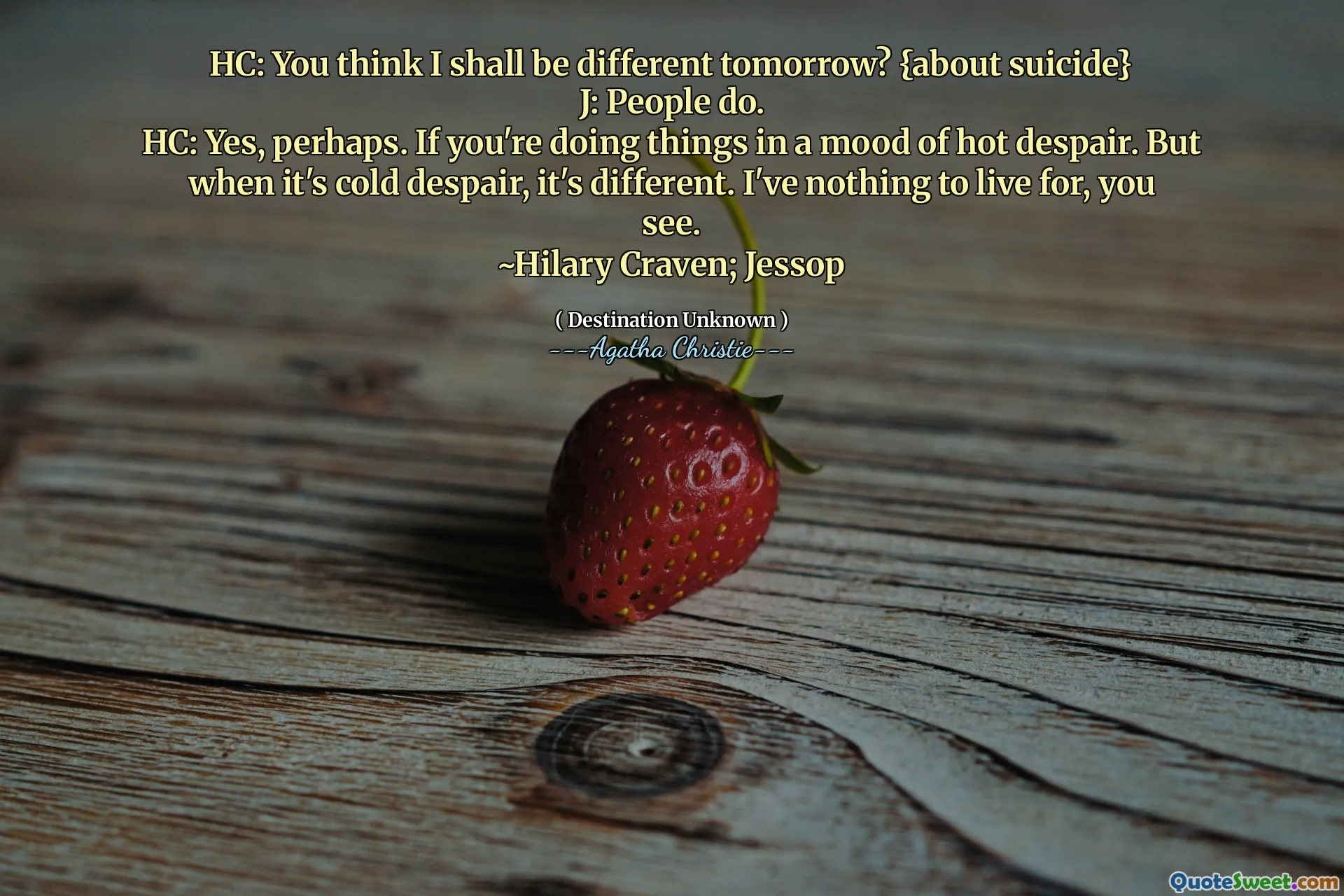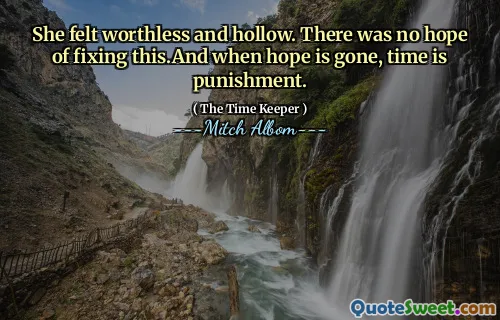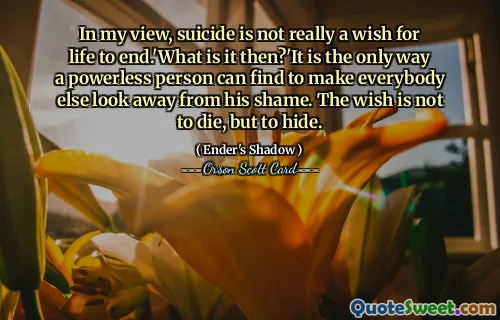
HC: You think I shall be different tomorrow? {about suicide} J: People do. HC: Yes, perhaps. If you're doing things in a mood of hot despair. But when it's cold despair, it's different. I've nothing to live for, you see. ~Hilary Craven; Jessop
This exchange between Hilary Craven and Jessop poignantly captures the nuanced distinctions in emotional states that lead individuals to contemplate suicide. The contrast made between "hot despair" and "cold despair" is compelling and chilling. "Hot despair" evokes images of intense emotional turmoil, impulsivity, and possibly an escaping of unbearable pain in the heat of the moment — a hopeful, though tragic, indication that feelings may change by tomorrow. Conversely, "cold despair" suggests a profound, numbing hopelessness where the individual feels nothing to live for at all, a bleak stagnation without passion or fluctuation. This type of despair may be more insidious and persistent, with a deeper existential weariness.
The dialogue invites readers to reflect on how varied despair can be and why some may see tomorrow as a chance for renewal, while others see it as continuation of emptiness. It also points to the critical importance of understanding the different emotional landscapes in those who suffer, which can profoundly affect how friends, family, and professionals respond. The quote thoughtfully disrupts simplistic binary views of suicide by highlighting the complexity of human emotion.
Agatha Christie's framing through these characters in "Destination Unknown" enriches the emotional and psychological depth of the narrative, encouraging empathy and a more layered appreciation of mental health struggles. Recognizing cold despair's silent endurance emphasizes the need for patient, compassionate engagement with those who feel invisible or beyond help, and the importance of nuanced mental health interventions.



